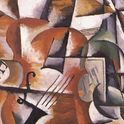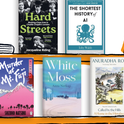Apple in China: The Capture of the World’s Greatest Company
by Patrick McGee (Simon & Schuster, £25)
Publishers dream of such confluence. Just 10 days after the publication of Apple in China—journalist Patrick McGee’s account of how the titular tech company came to rely on the titular country for manufacturing—Donald Trump threatened to impose a 25 per cent tariff on iPhones if they are not made in the United States. Overnight, McGee’s book became a handbook for understanding the immediate present.
Among its teachings: Trump’s demands are basically impossible. Apple’s move to China has been so complete that reversing it would be the work of decades. It started in the 1990s, when the company saw the cost and time savings that could follow from operating in a country with low wages and—let’s say—unforgiving attitudes towards work-life balance. And it’s continued apace under the leadership of Tim Cook, such that 90 per cent of Apple’s products are now manufactured in China.
China has gained from this relationship too. As McGee says, in a comparison with the Biden administration’s policy to invest $52bn in US semiconductors over four years: “Apple’s investments in China, every year for the past decade, are at least quadruple the amount the US commerce secretary considered a once-in-a-generation investment.” The company has trained some 28m Chinese workers, “more people than the entire labor force of California”.
All this amounts to, in McGee’s words, “a geopolitical event, like the fall of the Berlin Wall”. And, of course, despite appearances, Berlin Walls don’t fall in a day.
Though, as crazy as he is, you can understand why Trump is tilting at this particular windmill. Here is a state—a threat in many ways, not least to its own people—that isn’t just growing rich off Apple’s largesse, it’s also growing smarter. McGee makes it clear that the expertise gained from making iPhones has been transferred to China’s own tech companies, leading them to make cheaper, better, more desirable devices. In the end, you wonder, could Apple’s dependency on the country be its nemesis?
Peter Hoskin
Burn Them Out!: A History of Fascism and the Far Right in Ireland
by Pádraig Óg Ó Ruairc (Apollo, £16.99)
This is a book that punctures the deeply held Irish delusion that the island is immune to fascism. This account, the first overarching history of the far right in Ireland, proves that fascism has been a feature of the country’s body politic for a century. It also recounts how the ideology has been repeatedly scuppered by both militant anti-fascism and its own ineffective leadership.
Ó Ruairc tracks Irish fascism from its genesis in a small Italian community in Dublin in 1923 up to the variegated, UK-US inspired movements of today. The first and only fascist movement to gain a proper foothold in the South, we learn, is “the Blueshirts”—the violent paramilitary wing of Fine Gael, the country’s main opposition party. In fact, in 1934, this was the largest non-governing fascist organisation in the world. (Although there remains debate about whether the Blueshirts ought to be classed as fascist, the author convincingly makes the case that they were.)
Foremost among the longlist of bizarre demigods we meet is Blueshirt leader Eoin O’Duffy, who revered Mussolini and, at his peak, commanded 47,000 men. However, his spectacular incompetence renders him more comic than fearsome. In one scene he shoots off his own finger, but the high-water mark of his farcicality is reached when a drunken band he leads into the Spanish Civil War mistakenly kills 13 comrades, then shoots a priest for lecturing them about drinking and is eventually forced to disband.
A series of short-lived movements follow in the South, along with some potent, English-backed Loyalist ones in the North. The contemporary far right, responsible for arson attacks and riots, seems to be the ideology’s strongest expression in decades.
Although Ó Ruairc’s apparent republican conviction is refreshing at times, it leads him to overemphasise the role of outside forces in encouraging Irish fascism while neglecting the extent to which these impulses are a consequence of anger against an economic model. Nevertheless, Burn Them Out! is a riveting and comprehensive telling of a subject too often written out of Irish history.
Cormac Kehoe
Ctrl+Alt+Chaos: How Teenage Hackers Hijack the Internet
by Joe Tidy (Elliott & Thompson, £16.99)
Marks & Spencer is a venerable old British institution, but it’s been brought low by a vicious new global threat—cybercrime. Thanks, it’s thought, to the actions of a computer hacking collective known as Scattered Spider, the retailer has barely had a functioning website since April. It expects to lose £300m in profits. It’s a mess.
Who are Scattered Spider? Ctrl+Alt+Chaos, by the BBC’s first cyber correspondent, Joe Tidy, doesn’t answer that question directly—it focuses on the hacking gangs that operated between 2010 and 2015—but it does tell you everything you really need to know about this very modern threat.
First of all, they are not Russia or China. They are almost certainly all boys, teenaged or just above, wearing black T-shirts and harbouring blacker thoughts. They probably all followed a similar route into this line of disruption: video games, followed by a bit of coding, followed by dodgy online chat sites where others spur them on to more malicious feats. And they’re in it not primarily for money—but for kicks.
These descriptions certainly apply to the main character of Tidy’s nonfiction, a Finnish hacker called Aleksanteri Kivimäki but more familiarly known by his handles “Zeekill” and “ransom_man”. Kivimäki was responsible for an intrusion a thousand times more callous than the M&S hack, when, in 2020, he released the records of thousands of people—children among them—who had attended mental healthcare clinics in his home country.
It is a dark story and an illustrative one. Tidy reveals, through blessedly uncomplicated prose, how hacking developed from being a relatively noble pursuit in the 1980s into something conducted by 21st-century sociopaths who want to “inflict hurt and harm for their amusement, pleasure and power”. Read it—and update your computer’s security settings.
Peter Hoskin
Shibboleth
by Thomas Peermohamed Lambert (Europa Editions, £14.99)
Edward, “polite, shy, thoughtful”, was all but invisible in his first year at Oxford. The one friend he made was Youssef, and only then because of Edward’s late Muslim grandfather from Zanzibar. “You have the very thing that all white people crave,” Youssef says, “which is a little story about how you’re not white, not really.”
Shibboleth, Thomas Peermohamed Lambert’s smart and skewering debut novel, begins at the start of Edward’s second year. Determined to exploit his friend’s heritage for social capital, Youssef persuades Edward to tell his story at a cultural sensitivity workshop run by college queen Angelica Mountbatten-Jones. The effect is instantaneous. Where before Angelica ignored Edward, now she is all over him—and the two are soon the hottest couple on campus.
Yet Edward doesn’t know the first thing about Zanzibar, and the more he pretends to, the more precarious his popularity becomes. His supposed allegiance to Islam also complicates his relationship with Rachel, a Jewish coursemate for whom he develops feelings.
This is treacherous terrain for comedy—identity politics because it is so easy a target; the Israel-Palestine conflict because it is so vexed—and indeed some of Lambert’s social justice warriors are a little over-caricatured. But that is the only disappointment. Otherwise, the comedy is note-perfect.
There is an especially well-observed scene at a poetry night. One of Angelica’s cronies, Minka, has just read an interminable draft called “Love Beneath the Tractor” and is hassling Edward for feedback. He tries to fob her off with banalities, but she’s not having it. Then he remembers a buzzword from the cultural sensitivity workshop: dialectical. “It was rather dialectical, wasn’t it?” Minka replies, like it’s the greatest possible compliment. “I’m glad someone noticed.” This still makes me laugh.
George Cochrane
Back in the Day
by Oliver Lovrenski, translated by Nichola Smalley (Hamish Hamilton, £14.99)
Published in Norway when its author was 19 years old, Oliver Lovrenski’s debut novel, Back in the Day, confirmed him as one of his country’s most exciting young writers. Now available in English thanks to Nichola Smalley’s translation, this story of brotherhood, gang culture and migrant life in Oslo is earning similar renown in the UK.
Croatian-Norwegian protagonist Ivor, who shares Lovrenski’s own heritage, is a streetwise, restless teenager who forays further and further into Oslo’s subculture of drugs and gang violence. He is joined on this misadventure by a childhood friend, a Somali migrant called Marco, as well as by Jonas and Arjan, who complete their band of four. They all serve as each other’s only male role models, but—with tragic irony—their loyalty to each other keeps them trapped in a cycle of threat and retribution.
The whole novel is structured around lowercase vignettes acting as snapshots of Ivor’s experience—most don’t stretch beyond a page. What was once genuine formal experimentation is now a bit of a gen-Z gimmick, but Lovrenski’s prose avoids feeling artificial, instead reflecting how the boys’ moments of lucidity or regret are quickly supplanted by the next hit or the next reprisal. It’s stream-of-consciousness for a notes-app age, a keen reminder of how social media is the fabric and the politics of their world.
Amid all this, it is hard not to feel for Ivor; he is witty and perceptive. But is he also to blame? Perhaps partially. Neither he nor the adults around him had the resolve to keep him on track to achieve his ambition of becoming a lawyer. But Lovrenski’s main critique is at once broader and more subtle—directed, as it is, at a culture of neglect that leads boys to empower themselves in other, more dangerous ways.
Emily Lipscombe













